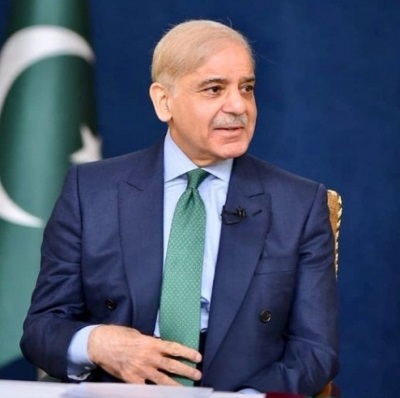Islamabad, (Asian independent) The crucial meeting between Pakistan Prime Minister Shehbaz Sharif and Chief Justice (CJ) Qazi Faez Isa, was held to discuss the controversy flared up after sitting high court judges sent an open letter to the Supreme Court accusing country’s intelligence agencies of interfering in judicial matters, cases and verdicts.
The government has decided to form an inquiry commission to dig deeper into the serious allegations leveled by the six sitting judges of the Islamabad High Court.
Law Minister Azam Nazeer Tarar, while briefing about the meeting, said that the letter of the six high court judges would be placed in front of the federal cabinet tomorrow (Friday) to get an approval. As per details, a senior former retired Judge of the Supreme Court of Pakistan (SCP) will be selected to head the inquiry committee.
The meeting was held on request of Chief Justice Qazi Isa, whose call was readily responded to by the premier as he rescheduled his day routine and accepted to meet. The meeting lasted at least 1.5 hours, after which, CJ Isa summoned a second full court meeting to brief about the findings of the meeting with PM Shehbaz and also take forward the discussions from the first full court meeting to take stock of allegations leveled by six IHC judges against interference in judicial affairs by the powerful apparatus of the intelligence agencies.
“We (government) leave it for the Supreme Court to decide if the letter written by six judges of the Islamabad High Court (IHC) is in violation of the law or not and if action should be taken against the high court judges or no,” said Azam Nazeer Tarar, Federal Law Minister.
This is the first time that six out of the eight sitting judges of the Islamabad High Court (IHC) have come out with an open letter, leveling serious allegations and accusations against intelligence operatives and agencies for interfering in judicial matters and trying to enforce their directives and dictations to the judges in their decision making.
“The situation is very alarming and it needs a thorough probe,” said Mansoor Usman Awan, Attorney General of Pakistan (AGP).
“Most of the allegations leveled and mentions of events in the letter refer to event from the last year and the tenure of the former chief justice of Pakistan,” said Azam Nazeer Tarar.
What is crucial in this situation is that the unprecedented letter with allegations of interference by intelligence agencies can have serious consequences for both the intelligence agencies and sitting judges as the findings of the inquiry commission can hold either party responsible for interference or violation and hold them accountable for the same.
The six judges of the Islamabad High Court (IHC) may find themselves in hot waters soon as their letter to the Chief Justice would now be probed and investigated. And because the allegations are severe and really serious, the country’s powerful establishment may look towards making an example out of some or all the judges, who have pointed direct fingers towards deliberate interference of spy agencies in judicial affairs.









